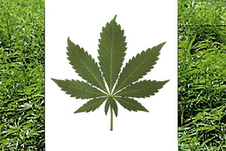The Economics of Legal Marijuana
The Economics of Legal Marijuana
This is an excellent article on how taxing and regulating marijuana would do wonders to stop the violence in Mexico. bring a seriously needed cash infusion into government coffers., and LOWER the cost of marijuana.
The article quotes from a Fraser Institute study saying:
The study estimates that the average price of 0.5 grams (a unit) of marijuana was $8.60 on the street, while its cost of production was only $1.70. In a free market, a $6.90 profit for a unit of marijuana would not last for long. Entrepreneurs noticing the great profits to be made in the marijuana market would start their own growing operations, increasing the supply of marijuana on the street, which would cause the street price of the drug to fall to a level much closer to the cost of production. Of course, this doesn't happen because the product is illegal; the prospect of jail time deters many entrepreneurs and the occasional drug bust ensures that the supply stays relatively low. We can consider much of this $6.90 per unit of marijuana profit a risk premium for participating in the underground economy. Unfortunately, this risk premium is making a lot of criminals, many of them with ties to organized crime, very wealthy.Its a very interesting article with some very interesting points. None that haven't been brought up time and time again on this blog and by many other pro marijuana supporters.
“If we substitute a tax on marijuana cigarettes equal to the difference between the local production cost and the street price people currently pay--that is, transfer the revenue from the current producers and marketers (many of whom work with organized crime) to the government, leaving all other marketing and transportation issues aside we would have revenue of (say) $7 per [unit]. If you could collect on every cigarette and ignore the transportation, marketing, and advertising costs, this comes to over $2 billion on Canadian sales and substantially more from an export tax, and you forego the costs of enforcement and deploy your policing assets elsewhere.”













No comments:
Post a Comment